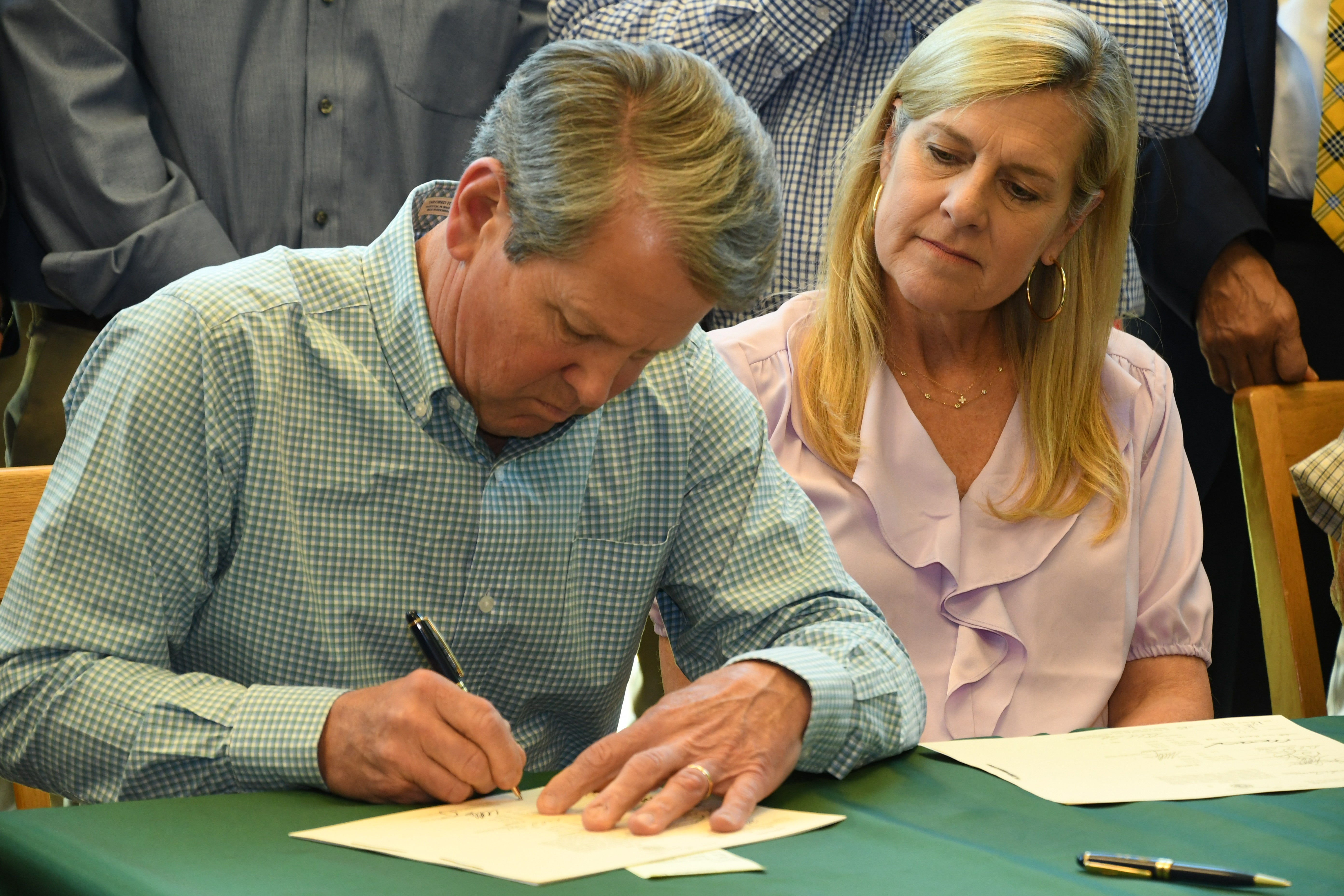Kemp signs ag legislation at Bainbridge ABAC campus
Published 9:34 am Wednesday, April 26, 2023
|
Getting your Trinity Audio player ready...
|
A large crowd gathered in the ABAC Bainbridge campus library last Tuesday afternoon, with members of both state and local government in attendance, as Governor Brian Kemp made a visit to sign two pieces of ag-focused legislation. These were the Citrus Commodity Commission Bill and the Farmland Conservation Fund.
The Citrus Commodity bill, according to Ag Commissioner Tyler Harper, as the name implies, sets up a commodity commission for the citrus industry. “It’s becoming an industry that is becoming more successful in our state, and ways that we can continue to promote and ensure this industry is successful is to allow this commodity commission to go into effect,” Harper said. As for the Farmland Conservation legislation, Harper described it as: “It allows us, and citizens in this state, and farmers, producers, and land owners the opportunity to put their land in a trust fund, and a conservation easement, to protect that ag land for ag production purposes, for many, many generations and generations to come.”
After Harper spoke, the governor took to the podium to speak. Kemp briefly addressed the crowd about his second term, and also recognized one member of the audience in particular, Elmo Harrison, a peanut farmer from Whigham who turned 100 last year. He then turned his attention to the legislation at hand, saying, “Our farming families are more important than ever, I believe, and that’s why it’s crucial we protect their way of life.”
Of the citrus legislation, Kemp clarified that the citrus fruit commission would be under the Department of Agriculture. The farmland conservation act would create a fund to preserve agricultural land to combat loss of farmland “as it becomes more challenging to maintain a family farm.”
“With both these bills, we’re once again underscoring the importance of Georgia’s number one industry, and further supporting the hard-working men and women who make our state the best place to live, work and raise a family, all the while making food and other products important in our daily lives,” Kemp concluded.





